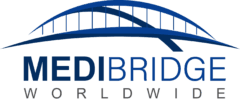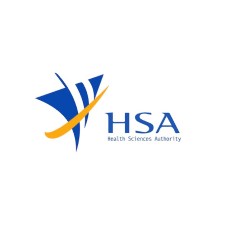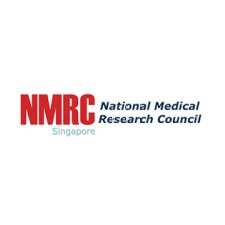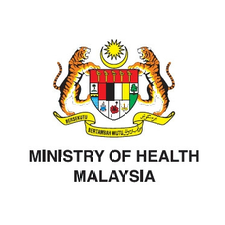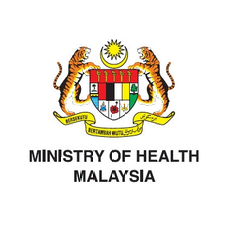CARDIOLOGY STEM CELL THERAPY
Bridging Care, Building Trust
Cardiac Conditions Treatable with Stem Cell Therapy
Stem cell therapy offers innovative solutions for diverse cardiovascular pathologies by harnessing the body’s innate regenerative potential. Key treatable conditions include:
- Ischemic Heart Disease (IHD): Myocardial infarction (heart attack), angina, and post-infarct cardiomyopathy.
- Heart Failure: Chronic systolic/diastolic dysfunction, including congestive heart failure.
- Cardiomyopathies: Dilated cardiomyopathy (DCM), hypertrophic cardiomyopathy, and ischemic
cardiomyopathy. - Congenital Heart Disease (CHD): Post-surgical tissue repair in pediatric and adult patients.
- Peripheral Vascular Disease: Critical limb ischemia and coronary microvascular
dysfunction.
87.5% of congestive heart failure patients report symptom improvement in clinical trials.
What is Cardiology Stem Cell Therapy?
Stem cell therapy utilizes undifferentiated biological cells with dual capabilities:
- Self-renewal: Unlimited replication without losing potency.
- Multilineage Differentiation: Transformation into cardiomyocytes (heart muscle cells), endothelial cells (blood vessels), or pacemaker cells.
Primary Cell Types:
- Mesenchymal Stem Cells (MSCs): Sourced from bone marrow, adipose tissue, or umbilical cord; modulate inflammation and stimulate regeneration.
- Induced Pluripotent Stem Cells (iPSCs): Lab-reprogrammed adult cells (e.g., skin fibroblasts) that mimic embryonic stem cells.
- Cardiac Stem Cells (CSCs): Resident heart cells with innate cardiac repair potential.
Ethical Compliance: Clinical protocols exclusively use adult derived or perinatal cells—never embryonic sources.
Key Scientific and Clinical Features
Regenerative Mechanisms
- Paracrine Signaling: Secretion of growth factors (VEGF, IGF-1) that reduce inflammation and stimulate host cell repair.
- Direct Differentiation: MSCs transform into functional cardiomyocytes or vascular cells.
- Immunomodulation: Suppression of pro-inflammatory cytokines (TNF-α, IL-6) in autoimmune-driven cardiac damage.
Safety Profile
- Adverse Event Rate: <2% serious events (e.g., arrhythmias); minor reactions (fever/redness) resolve in 24–48 hours.
- Tumor Risk: Near-zero with adult MSCs (vs. iPSCs/ESCs).
Clinical Implementation: From Lab to Heart
Step 1: Cell Harvesting & Processing
- Autologous Sources: Bone marrow (iliac crest aspiration) or adipose tissue (mini-liposuction).
- Allogeneic Sources: Banked umbilical cord-derived MSCs (ready for immediate use).
- Lab Expansion: 2–3 weeks of culture to achieve therapeutic doses (200–300 million cells).
Step 2: Delivery Methods
Intracoronary Delivery
This method infuses stem cells directly into the coronary arteries, typically during a heart attack procedure. It targets damaged regions quickly, but is often limited by microvascular obstruction and low retention—only about 2–5% of cells remain in the heart after infusion
Intramyocardial Injection
Delivered via a catheter into the heart muscle—either transendocardial (through the inner wall) or transepicardial (surgical access)—this method achieves the highest cell retention and targets scar-border zones directly. Retention rates can exceed 11% and reach up to 92% in catheter-based protocols, resulting in better functional recovery for chronic heart failure patients
Transendocardial Administration
Using advanced 3D mapping systems, cells are injected via catheter into precisely targeted heart areas to treat refractory angina. This guided approach achieves much higher myocardial retention than intracoronary infusion and enhances symptomatic relief and perfusion
Intravenous Infusion
The simplest and least invasive approach, systemic IV delivery relies on natural homing signals to route cells to the heart. However, most cells are trapped in the lungs and distant organs, with very low cardiac engraftment (1–5%), and it is often reserved for adjunctive therapy or inflammatory conditions
Key Data Insight
Catheter-based intramyocardial delivery can retain up to 92% of administered cells within the myocardium, compared to just 5% retained via intravenous infusion—highlighting the critical importance of delivery route in therapeutic efficacy.
Step 3: Post-Treatment Protocol
- Weeks 1–4: Cardiac MRI to assess infarct size reduction.
- Months 2–6: 6-minute walk test and LVEF measurement (echo/MRI).
- Long-term: Annual stress testing + biomarker tracking (BNP/troponin).
Advantages Over Conventional Cardiology Treatments
- Tissue Regeneration: Reverses structural damage by replacing scar tissue with functional myocardium—unlike drugs that merely manage symptoms.
- Minimally Invasive: Outpatient procedures avoid open-heart surgery risks.
- Functional Improvement:
- ↑ 4–8% LVEF in heart failure patients.
- ↓ 30% hospital readmissions for CHF exacerbations.
- Halts Disease Progression: Reduces infarct size by 9–15% in IHD.
- Adjunct to Standard Care: Complements medications (ACE inhibitors, beta-blockers) and devices (ICDs).
Why MediBridge Excels in Cardiac Stem Cell Therapy
Scientific Rigor
- Cell Viability Standards: ≥85% viability via third-party validation.
- Dose Precision: 200–300M cell protocols optimized for cardiac applications.
Clinical Excellence
- ASEAN Cross-Border Model:
- Singapore: Pre-treatment diagnostics at Mount Elizabeth/Gleneagles.
- Malaysia: Treatment at Prince Court Medical Centre (40% cost savings).
- Halal-Certified Biologics: JAKIM-compliant MSCs for OIC patients.
Patient-Centric Innovations
- AI Triage Algorithm: Excludes ineligible patients (e.g., advanced malignancy) pre-consult.
- Recovery Retreats: Luxury convalescence packages with halal nutrition and prayer facilities.
- Long-Term Monitoring: SG-based telemedicine + MY lab follow-ups for 24 months.
Transparent Outcomes
- 88% Patient Satisfaction: Among 1,200+ treated (2023–2025).
- Cost Efficiency: MSC therapy from MYR 45,000 (≈$9,500) vs. US/EU costs of $25,000+.
“MediBridge turns hope into action—combining Swiss precision with ASEAN compassion.”
The Future: 2025–2030 Breakthroughs
- Gene-Edited iPSCs: CRISPR-enhanced cells for inherited cardiomyopathies.
- Exosome Therapeutics: Cell-free vesicles delivering MSC-derived reparative microRNAs.
- 3D-Bioprinted Patches: Tissue-engineered myocardial grafts for severe scar replacement.
Take the Next Step with MediBridge
Begin Your Regenerative Journey:
- Free Pre-Screening: WhatsApp medical reports for eligibility assessment.
- Personalized Protocol: Condition-specific cell type/delivery method planning.
- Seamless Logistics: Medical visas, airport transfers, luxury recovery resorts.
“After MSC therapy, my ejection fraction rose from 35% to 48%. I now garden without breathlessness.”
— Ritika, Indonesia (Treated for ischemic cardiomyopathy, 2025)
Ready to Begin Your Healthcare Journey?
Get a free consultation with our medical experts to discuss your treatment options
